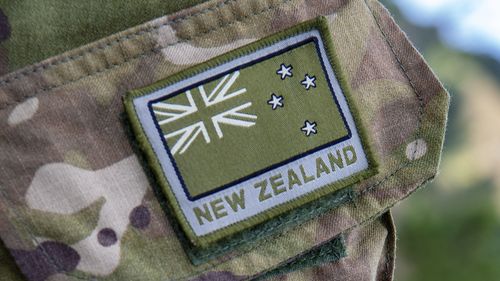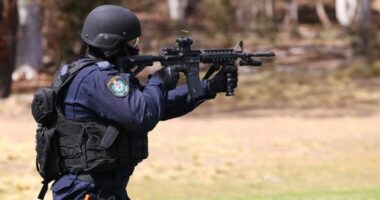Share this @internewscast.com
This marks the first conviction for spying in New Zealand’s history. The soldier’s identity and the country he attempted to provide secrets to remain undisclosed.

The wording of the charge said his actions were âlikely to prejudice the security or defence of New Zealand”.
He wasn’t communicating with a foreign agent, but rather an undercover New Zealand police officer gathering intelligence on suspected right-wing extremist groups, as revealed by documents from the military court.
The soldier became known to law enforcement through an operation launched after the March 2019 terrorist attack on two mosques in Christchurch, where an Australian white supremacist killed 51 Muslim worshipers.
Court documents indicated that officers spoke with the man twice regarding his involvement in a group; once the government was aware of his intention to defect, they had the undercover officer contact him.
Upon searching the soldier’s hard drive, investigators discovered a copy of the Christchurch gunman’s livestreamed massacre video and his manifesto, which was published online prior to the attacks.
Possession of these materials without permission is a criminal offense in New Zealand, and the soldier, who also admitted to this charge, is among several individuals in New Zealand convicted of having or sharing the terrorist’s prohibited content.
In a statement read to the court by his lawyer, the man said the two nationalist groups with which he was involved were âno more than groups of friends with similar points of view to my own,â according to Radio New Zealand.
The lawyer, Steve Winter, added that his client denied supporting the Christchurch shooterâs ideology, RNZ reported.
The soldier â who was based at Linton Military Camp near the city of Palmerston North â also pleaded guilty to accessing a military computer system for dishonest purposes.
The amended suite of three charges replaced 17 counts levelled against him earlier in the proceedings.
Each of the three charges he admitted carries a maximum prison term of either seven or 10 years in New Zealand. His sentence was expected to be delivered by a military panel within days after the conviction.
The man had been due to stand trial by court-martial on the charges before he admitted the offences.
His was the first charge in a New Zealand military court for espionage or attempted spying; the last time such a case reached the civilian courts before was in 1975, when a public servant was acquitted on charges alleging he had passed information to Russian agents.
A spokesperson for New Zealandâs military said they would not comment until the proceedings against the soldier finished.













